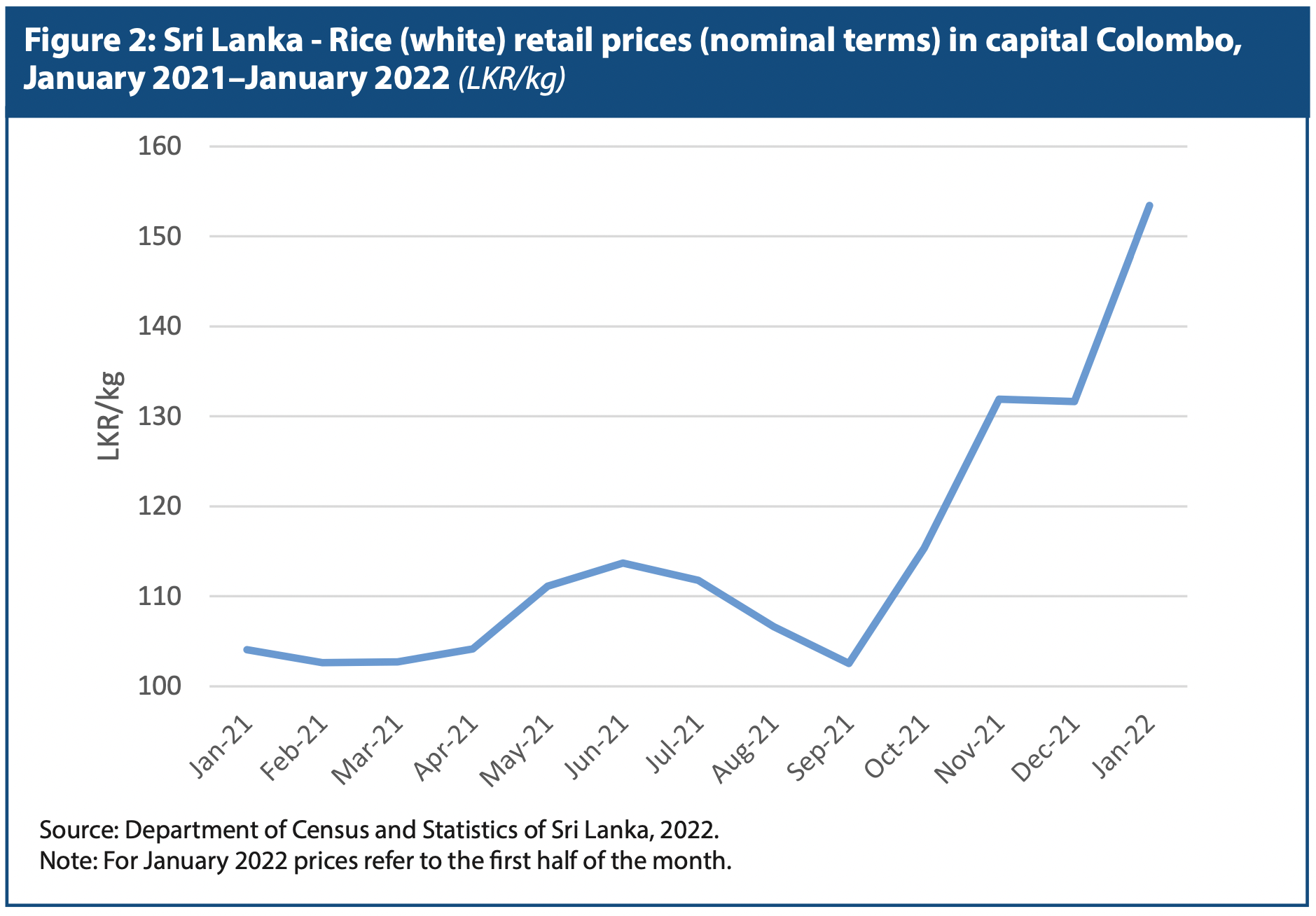
As Sri Lanka's economy continues to collapse, prices of staple foods have reached a record high, restricting vulnerable households to access food says the Food and Agriculture Organisation of the UN.
Since the coronavirus outbreak, Sri Lanka's economy has been in dire straits as revenue from the tourism sector and exports have dwindled, causing the Sri Lankan rupee to depreciate. As a result, prices of imported food items and locally produced food items have increased, reaching record levels in January 2022.
The organisation highlighted that "the difficult macroeconomic environment has resulted in reduced imports and subsequent increases in domestic prices of fuel and agricultural inputs (fertilisers and pesticides), rising concerns over the 2022 cereal output."
"As rice, wheat and sugar products account for about 40, 12 and 10 percent, respectively,1 of the average calories intake, vulnerable households have likely reduced their food consumption and/or switched to comparatively cheaper but less nutritious foods, with an overall negative effect on their food security, health and nutrition status," the UN update added.
Though Sri Lanka has been going through an unprecedented economic crisis, many in the current regime are staunchly opposed to reaching out to the IMF for intervention as they believe it will infringe their sovereignty.
Read more here.


